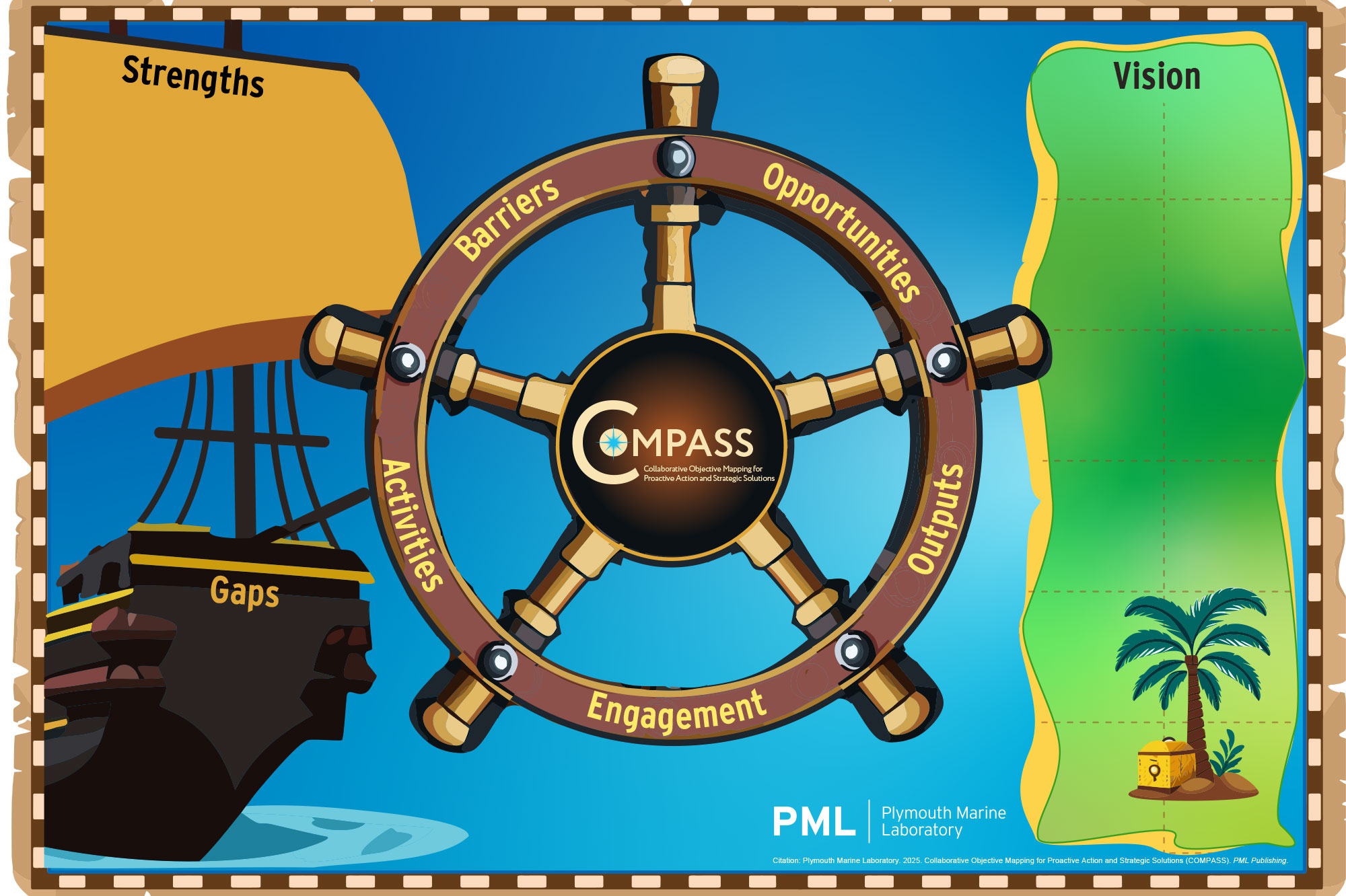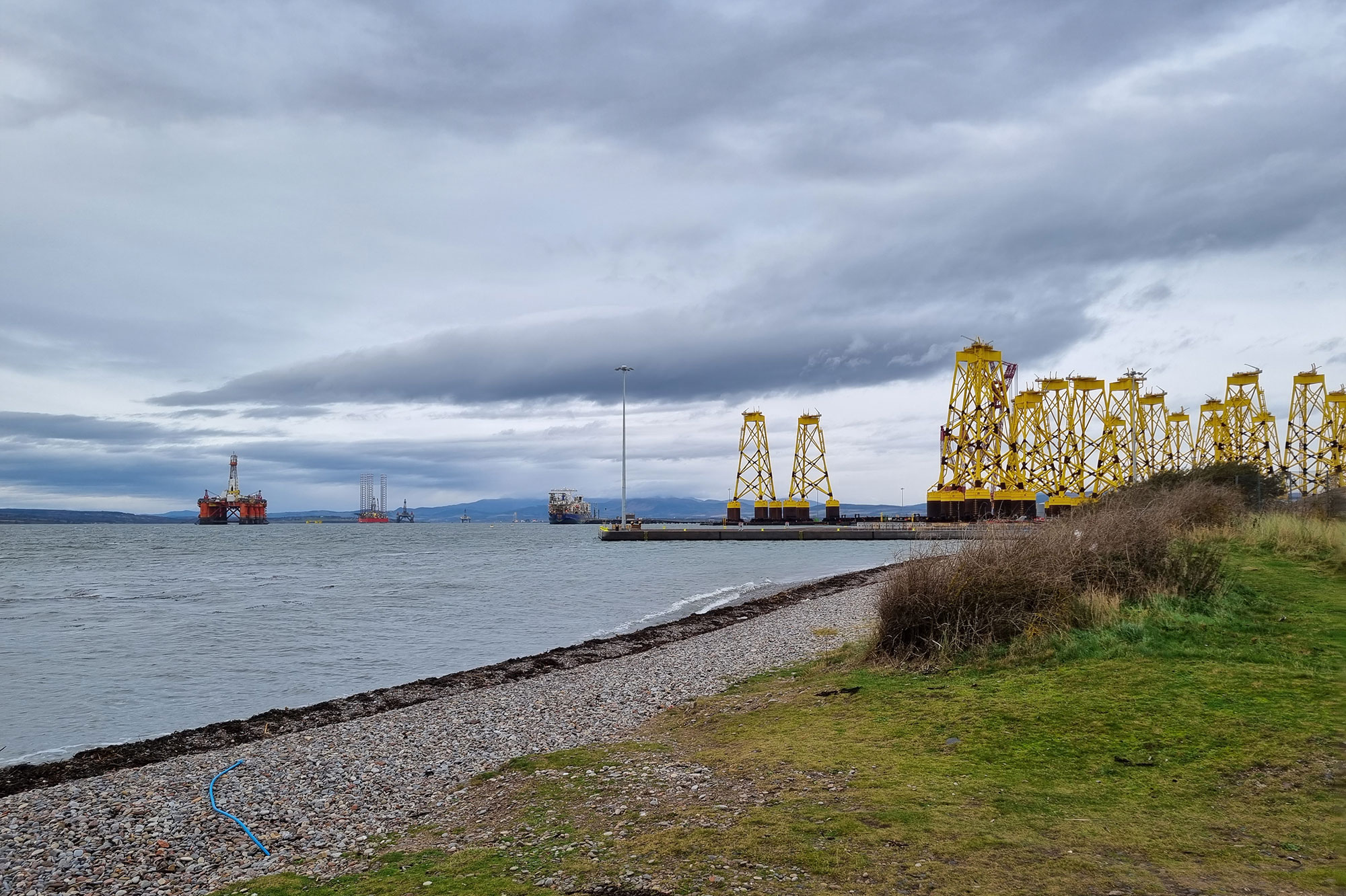Publication
AMT 30 Cruise Report
Dr Andy Rees

AMT30 departed from Port Stanley on 21st February 2023 aboard the RRS Discovery. The ship was home for over six weeks to crew and 26 scientists from PML, Scottish Association for Marine Science, National Oceanography Centre (NOC) and the Universities of Oxford, Exeter, Liverpool, East Anglia and Heriot Watt. We also welcome guests from University of Lisbon (Portugal), Michigan State University and NASA (USA), University of Pretoria (South Africa) and CICESE (Mexico).
In a break with tradition the 30th AMT cruise, the first since the COVID pandemic hit in 2020, departed Port Stanley on the 20th February 2023 and headed north, arriving in Southampton on 30th March. Onboard were teams from Plymouth Marine Laboratory, the National Oceanography Centre, UK Universities of Exeter, Heriot-Watt, East Anglia, Liverpool and Oxford, the Scottish Association for Marine Science, National Aeronautics and Space Administration, Michigan State University, University of Lisbon, Centre for Scientific Research and Higher Education of Ensenada and the University of Pretoria. Operations onboard included the measurement of core AMT variables in the maintenance of the now 28 year time series; Optical and atmospheric observations in support of NASA and the European Space Agency satellites; Deployment of 14 ARGO floats for the UK MetOffice and the NOC; and the recovery of the NOC – SOG sediment trap mooring in the South Atlantic gyre. AMT’s oceanography training program continued with places occupied by six PhD students from UK, US and South African universities alongside opportunities provided by POGO in the sponsorship of a research fellow from Mexico.
Now in its 28th year the AMT is a multidisciplinary program which undertakes biological, chemical and physical oceanographic research during an annual voyage throughout the Atlantic Ocean.
AMT objectives have evolved to enable the maintenance of a continuous set of observations, whilst addressing global issues that are raised throughout the most recent IPCC assessment and UK environmental strategy. AMT objectives are to:
(1) quantify the nature and causes of ecological and biogeochemical variability in planktonic ecosystems;
(2) quantify the effects of this variability on nutrient cycling, on biogenic export and on air-sea exchange of climate active gases;
(3) construct a multi-decadal, multidisciplinary ocean time-series which is integrated within a wider “Pole-to-pole” observatory concept;
(4) provide essential sea-truth validation for current and next generation satellite missions;
(5) provide essential data for global ecosystem model development and validation and;
(6) provide a valuable, highly sought after training arena for the next generation of UK and International oceanographers.
You can read more about the cruise and its scientific highlights in this report.
Download this publication
Please enter your details below to access the publication.
The information you provide will be used to gain a greater understanding of our audience.
Your details will be kept securely and in accordance with our Privacy Policy.
Cite this publication
Rees, AP. 2023 AMT30 Cruise Report. , 162pp. doi: 10.17031/d2vs-eg36
Related topics
Other publications from PML publishing
COMPASS User Guide (Collaboration Objective Mapping for Proactive Action and Strategic Solutions
2025
Plymouth Marine Laboratory
COMPASS Poster (Collaboration Objective Mapping for Proactive Action and Strategic Solutions
2025
Plymouth Marine Laboratory
Sea the Value Marine Natural Capital Training Materials
2025
Collar, M., Contento, C., Dickie, I., Watson, S.C.L., Broszeit, S., Preston, J., Van der Schatte, A., Watson, G., Anbleyth-Evans, J., Burdon, D., Potts, T., Chan, C., Chung, P., Tinch, R., Erskine, A., Watts, A., Beaumont N
Research Impact Spotlight Event – Plymouth Sound a the Tamar Catchment – Event report and next steps
2024
Plymouth Marine Laboratory, Tamar Estuaries Consultative Forum and Plymouth Sound National Marine Park (eds)
AMT1 Cruise Report
1996
Robins DB, Bale AJ, Moore GF, Rees NW, Hooker SB, Gallienne CP, Westbrook AG, Maranon E, Spooner WH, Laney SR




